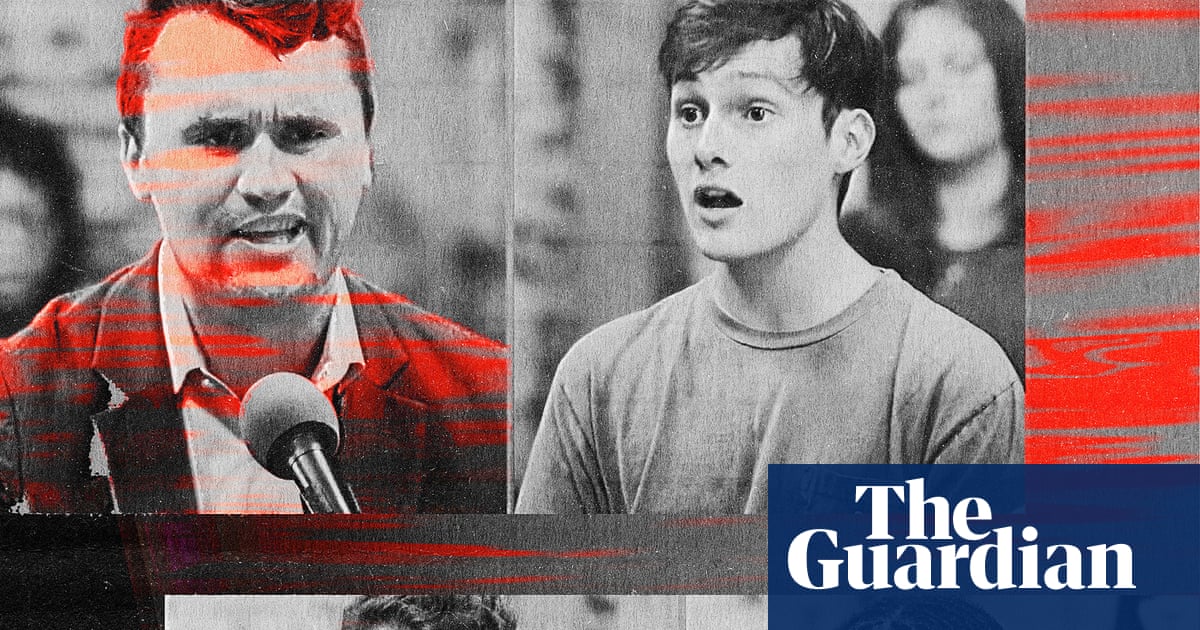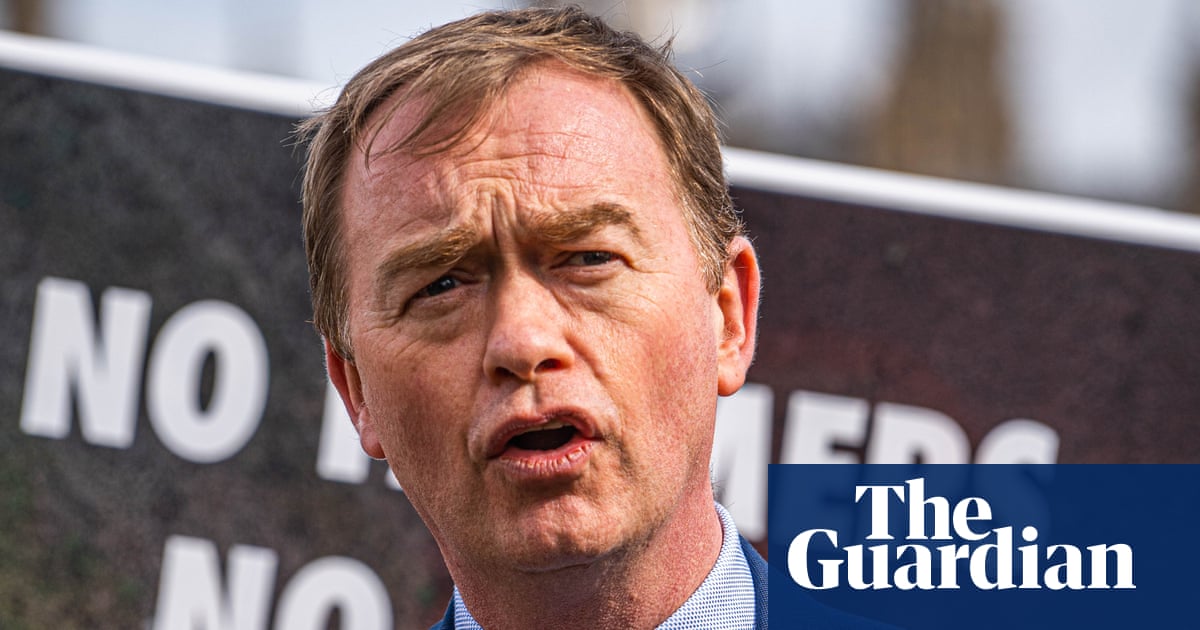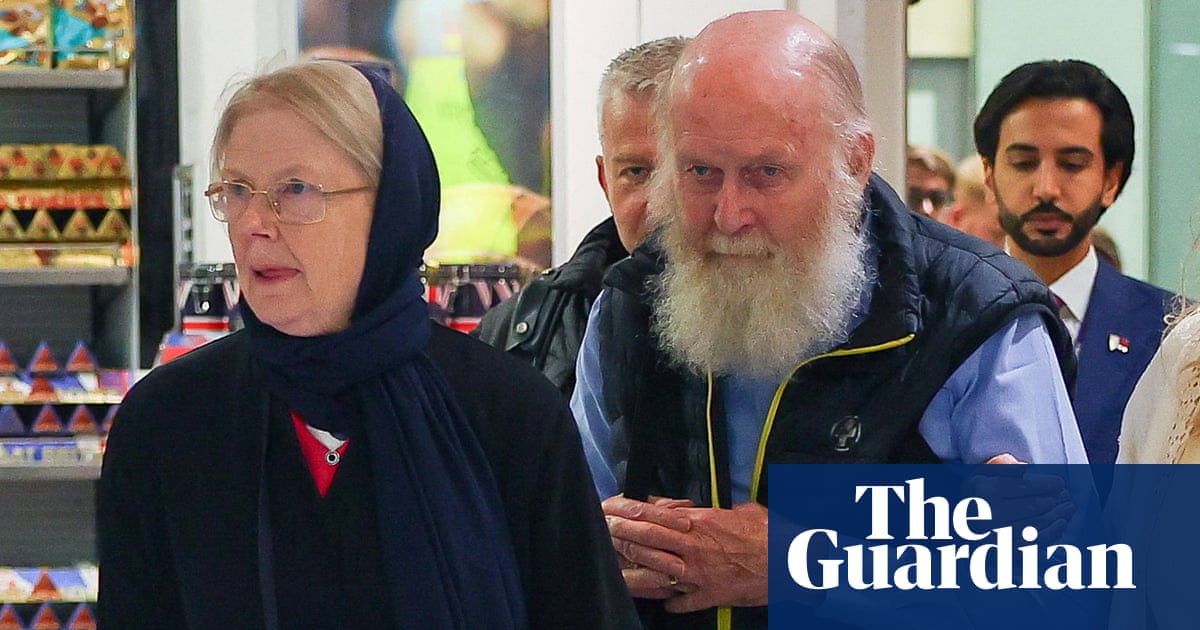If you are in the business of anointing monsters, you can see why your eyes would light up at a punk act called Bob Vylan. Until last weekend, sure, it might have been a tough sell to proclaim them as an avatar for Britain’s revolting youth: prominent though they might be on the UK’s punk scene, they had about about 220,000 monthly listeners on Spotify – a mere 1,000,000 away from a place in the top 10,000. But then, at Glastonbury, they made the most powerful possible case for broad media attention: they said something controversial about Israel’s assault on Gaza, and opened up a chance to have a go at the BBC.
And so the following morning, on the front page of the Mail on Sunday: “NOW ARREST PUNK BAND WHO LED ‘DEATH TO ISRAELIS’ CHANTS AT GLASTONBURY.” Pascal Robinson-Foster, aka Bobby Vylan, had started a round of “antisemitic chanting” that was broadcast live on the corporation’s coverage of the festival, the story explained. Keir Starmer called it “appalling hate speech”. The calls for the band members’ arrest were quickly picked up, and before long the Conservatives were suggesting that the BBC should be prosecuted as well. On Monday, the story splashed in the Sun, the Daily Mail, the Daily Telegraph and the Daily Express.
In fact, Robinson-Foster hadn’t chanted “Death to Israelis”, but “Death to the IDF”, a sharply different proposition, and one focused on the military machine attacking Gaza, the Israeli Defense Forces, rather than Israeli civilians. Nonetheless, the Mail on Sunday’s headline elision stuck. In much of the coverage, the idea that the chant was inherently antisemitic wasn’t even a question.

The assertion was barely explained in any of the front page stories; the BBC and even Glastonbury’s Emily Eavis went along with it too. If you were looking for a rationale, the closest you got came from Stephen Pollard in the Mail on Sunday: after comparing the scene to the Nuremberg rallies, he added that “what they meant – because the IDF is the army of the world’s only Jewish state – was ‘Death, death to the Jews’”. Later, Andrew Neil went further: “I was going to say that they sometimes seem to have more in common with the Nuremberg rally,” he mused. “But even the Nazis didn’t say ‘death to the Jews’.”
Meanwhile, Yvette Cooper has ordered that Palestine Action should be banned as a terrorist group for its targeting of buildings and businesses in opposition to Israel’s actions in Gaza, even though it has no agenda for violence – and after a last-minute legal challenge to the proscription failed on Friday, supporting them is now a criminal offence. In that environment, any uncertainty about the Bob Vylan story would plainly be treated as apologism for hate speech, or worse, and so there wasn’t a lot of it about.
In truth, though, a lot of people might have been uncertain. The IDF as metonym for any Jew is not a typical trope in the extremist’s lexicon, and the circumstances of the Israeli military’s assault on Gaza are the obvious, and urgent, locus of the chant’s intended force. Nonetheless, Avon and Somerset police have now opened a criminal investigation.
There are, to be sure, cogent objections to raise. Robinson-Foster described a record label boss as a “Zionist”, and while he noted that the executive “would speak very strongly about his support for Israel”, it is reasonable to accuse him of playing into a familiar antisemitic trope, particularly about the music industry.
Meanwhile, some Jewish people already alert to a rise in racist hostility towards them may well have felt alarmed by the sight of a crowd chanting against the Israeli army. Sensible people will come to a range of conclusions about those points – but there has been no space for that discussion, because the IDF apparently represents Jewish people everywhere, and everything else gets lost in the shuffle.
The death toll in Gaza now stands at more than 57,000, according to figures from the Gaza ministry of health; a robust independent survey recently put the count at almost 84,000. Israeli ministers and officials have given weight to allegations that a genocide is under way with assertions that starving two million Palestinians to death might be “justified and moral” and descriptions of a forced “deportation plan”. The amount of aid going into the territory remains a fraction of what is needed. At least 400 Palestinians have been killed recently in incidents involving the IDF while approaching food distribution centres; Haaretz reported that soldiers were ordered to fire on them deliberately, a claim denied by Israel as “vicious lies”.
Meanwhile, in the UK, the only adjacent story deemed worthy of front page attention is the conduct of an obscure punk-rap group from Ipswich. On 17 June, at least 59 Palestinians were killed after the IDF fired on a crowd waiting for flour trucks near Khan Younis. The next day’s Daily Telegraph, Daily Mail, Sun and Daily Express featured no coverage of that story at all. Perhaps they would have done if the BBC had broadcast it live.
It would be understandable, then, to conclude that the obsession with Bob Vylan – and Kneecap, and Palestine Action – matters mainly for its diversionary force. But there is something more at work here. It isn’t just that people are angry that the catastrophe in Gaza isn’t being given due attention: it is that their encounters with observable reality are being flatly denied. The choice framed by these stories is between being an anti-racist, or even an anti-terrorist, and being horrified by the slaughter of thousands of brown civilians in a military siege. For anyone who routinely sees videos of the aftermath of Israeli violence against civilians in their social media feeds, this is enough to make you feel crazy.
Across the UK and the US, there is increasing evidence that people who object to what we might call the Vylanising of the Gaza discourse are finding their voice. In the general election last year, Labour lost five seats to pro-Gaza candidates, and forfeited about a third of its vote in some Muslim majority areas. In New York, Zohran Mamdani won an underdog victory in the Democratic mayoral primary despite attempts to caricature him as an advocate of “jihad”. Some 55% of the British public opposes Israel’s military campaign in Gaza, and 45% view Israel’s actions as genocidal; less than half of Americans are now more sympathetic to Israel than to Palestinians, and almost 60% of Democrats are now more supportive of Palestinians. Among people under 40, those numbers only go up.
Those people have been told that Gaza protests are hate marches; they can see it’s not true. They have been told that US campus protesters are largely motivated by antisemitism; they can see it’s not true. They have been told that Palestine Action is a terrorist organisation because it spray painted military aircraft; they can see it’s not true. They have been repeatedly told, by Benjamin Netanyahu, that opposition to Israel’s war is antisemitic; they can see it’s not true. They have been told that the British government finds Israel’s actions “intolerable”; they can see it’s not true.
Now they are being told that opposing the IDF is antisemitic, that the Glastonbury crowd is more virulent than the one at Nuremberg, and that direct action is a form of terrorism. They can see all that’s not true, either, and however far their view is from the front pages, they know that they are far from alone.
-
Archie Bland is the editor of the Guardian’s First Edition newsletter

 2 months ago
118
2 months ago
118

















































